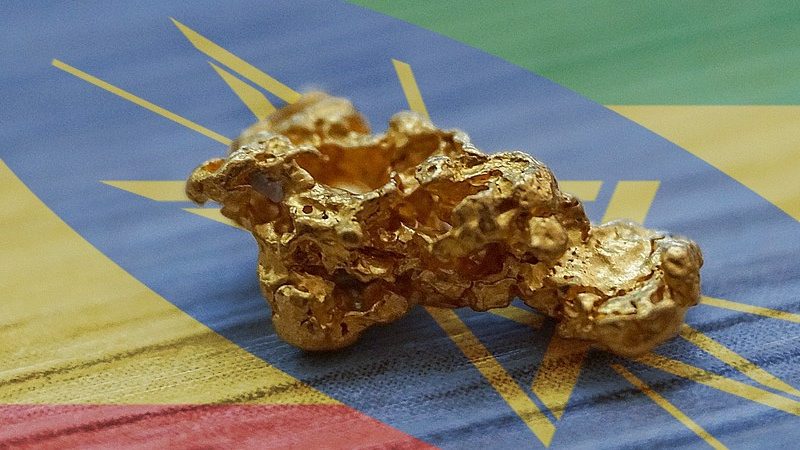Ethiopia had ambitious plans to generate $363 million from gold mining over the past nine months.
However, only 67 percent of this target has been met. The Ministry of Mines identifies illegal gold trading as the primary obstacle, despite efforts by the Defense Command Post and the National Intelligence and Security Service to curb it.
Illegal trading, smuggling, and security issues have significantly hindered the industry. Only three tons of gold have reached the National Bank in the past nine months, which is just 50 percent of the planned amount.
In March, the National Bank received a mere 350 kg of gold, a stark contrast to the 800 kg it received in March 2020.
The decline is particularly severe among traditional gold producers. Over the last nine months, traditional producers have supplied only 609 kg (26 percent) of the planned 2,306 kg to the National Bank.
According to Reporter newspaper, regions like Oromia, Benishangul Gumuz, Gambella, and Southwest Ethiopia have contributed minimally.
Conversely, regions such as Tigray, Afar, South Ethiopia, and Somalia have shown improvement compared to previous years.
Corporate gold producers have also underperformed. Out of the 2,400 kg of gold supplied by companies, Midroc Gold provided the largest share.
However, nine other companies, including Stella, Zumbara, Oromia Mining Elnet, Ezana, and Ethno Mining, collectively supplied less than 100 kg.
Notably, Ezana Gold Extraction Company claimed it would supply 375 kg to the National Bank but failed to deliver any gold.
Other minerals have also faced challenges. Tantalum and opal exports achieved only 40 percent and 49 percent of their targets, respectively.
In contrast, exports of lithium, precious, and industrial minerals have shown better performance.
The report highlights that much of the gold from traditional producers is smuggled out of the country.
Security concerns have hampered companies from initiating operations. The gold mining regions in Gambella, Benishangul Gumuz, Oromia, and South Ethiopia require protection by the Defense Forces, and regional governments need to collaborate with the Command Post and the National Intelligence and Security Service.
Local leadership conflicts exacerbate the situation. Presidents, office heads, and mining area managers often clash with command post officials and federal representatives.
Prime Minister Abiy Ahmed recently addressed the issue, stating that gold and mineral smuggling have reached alarming levels. He identified Asosa and Shire as significant hubs for illegal gold trafficking.
Experts believe that illegal gold often exits the country via Sudan, Kenya, and Somalia, eventually reaching markets in Dubai and India, with Uganda serving as a transit point.
The report indicates that the primary issue is the disparity between legal and black-market currency rates.
In response, a National Mining Development Coordinating Committee has been established, featuring senior leaders from the Prime Minister’s Office and regional presidents as members.
This committee aims to address the challenges and improve the regulation and management of the mining sector in Ethiopia.
